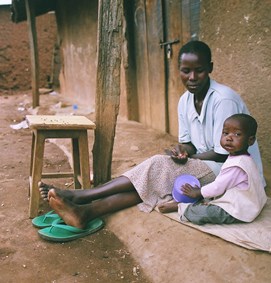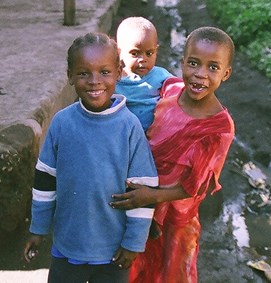
Working together to give children a chance to thrive
- Date: 06 February 2023
- Author: Rose Kagoro
- In: Tanzania

We sat down with Rose Kagoro, Strategic Liaison Manager, in Tanzania to learn more.
The alliance is a group of experts from like-minded organisations, united in our determination to improve the situations and futures of children separated, or at risk of separation, from their families.
The founding members of the alliance are Railway Children Africa, UNICEF, Save the Children, Pamoja Leo and individuals working with the University of Dar es Salaam, and the Open University.
We believe that the best place for children to grow is in a safe and nurturing family but more than 10,000 children in Tanzania remain on the streets, with 20,000 more in orphanages, and thousands more in other exploitative situations.
As an alliance we can develop and share models that support families to stay together and keep children safe.

Our research shows that children have the best chance to thrive if raised in a secure, loving family environment. We believe that wherever possible this should involve their own relations, and achieving this might involve supporting families in a range of ways.
Where this is not possible, we are advocating that alternative family-based care replaces institutional care as the last resort.
We know this ambitious mission will take time to achieve, but our vision is that by 2030 all children in Tanzania are raised in a caring, supportive and protective family, at all times.
Alternative family-based care is a system of care where children who can’t be looked after by anyone in their own families, are looked after by a family who have been selected, qualified, and approved by local authorities – either temporarily in the case of foster care, or forever in the case of adoption.

We know that the Tanzanian government is committed to family based care in principle, but there is no roadmap to outline how that is achieved. There is not necessarily a common understanding in government, or in the sector, about why family based care needs to be prioritised. By collaborating we can have the debates that are needed to arrive at a consensus and ensure that consistent messages are presented to help drive change.
We want to identify and share promising practices for keeping families together, for supporting children to return to their families, or for emergency shelter in family settings. We also want to develop a plan that outlines what are the priorities for change within the system, and how we convince government of making that change.
To make lasting change in Tanzania we need to ensure that children in crisis at home don’t end up on the streets. To achieve that we must contribute to the development of a child protection system that works for all children, but has the unique needs of children on the streets at its heart. To ensure positive, lifelong outcomes for these children, this must be based around family-based care.